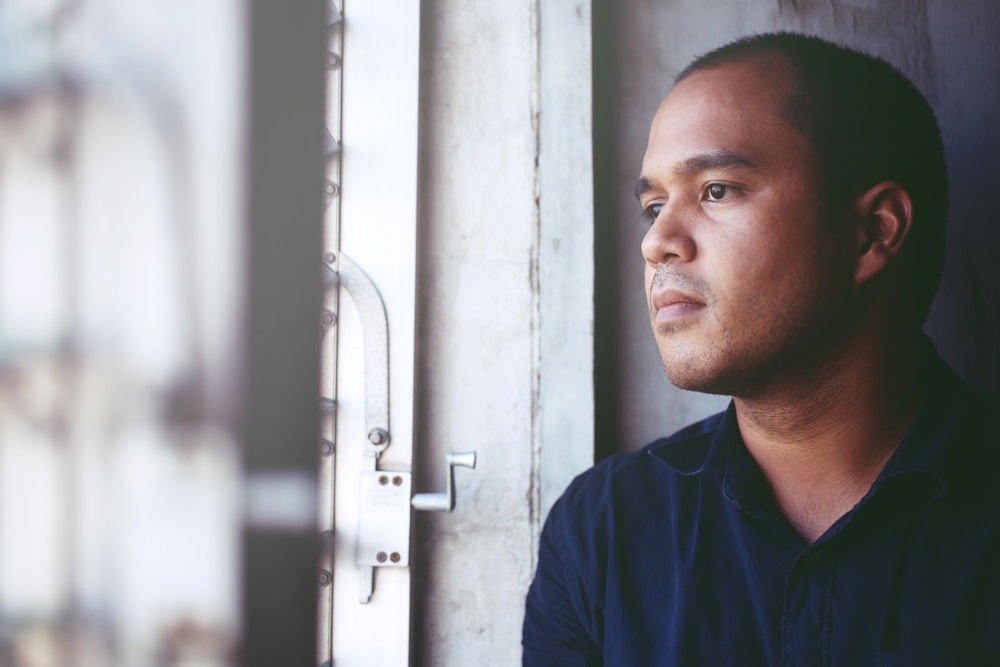Cocaine addiction can cause a range of disturbing psychological and physical effects, including a phenomenon known as “cocaine bugs.” This experience, also referred to as formication, is when users feel as if insects are crawling on or under their skin. This sensation can lead to severe scratching, skin damage, and psychological distress.
But what causes this sensation, and how does professional treatment help individuals overcome it? At Crestview Recovery, we provide comprehensive cocaine addiction treatment in Portland, Oregon, to help individuals heal both mentally and physically from the effects of cocaine use.
What Are “Cocaine Bugs” and What Causes Them?
“Cocaine bugs” are a type of tactile hallucination where individuals feel an itching or crawling sensation on their skin. This occurs due to the drug’s stimulant effects on the nervous system, which can disrupt sensory perception and trigger paranoia. Prolonged cocaine use alters dopamine and serotonin levels in the brain, leading to misfiring nerve signals that cause false sensory experiences. Additionally, sleep deprivation, malnutrition, and dehydration (common in heavy cocaine users) can worsen this sensation.
Are “Cocaine Bugs” a Hallucination or a Physical Sensation?
While the sensation of “cocaine bugs” feels very real, it is classified as a tactile hallucination rather than a true physical occurrence. The brain misinterprets nerve signals, creating the illusion that something is crawling on the skin. However, excessive scratching and picking at the skin can lead to very real wounds, infections, and permanent scarring.
How Common Is the Experience of “Cocaine Bugs” Among Cocaine Users?
The experience of “cocaine bugs” is relatively common among chronic cocaine users, particularly those who binge on the drug or have developed stimulant-induced psychosis. While not everyone who uses cocaine will experience it, individuals who consume large amounts over an extended period, suffer from sleep deprivation, or mix cocaine with other substances are at a higher risk.
Can Mental Illness Cause Formication Similar to Cocaine Bugs?
Yes. Certain mental illnesses can cause formication, the sensation of insects crawling on or under the skin. This symptom is a type of tactile hallucination and can be linked to various mental health and neurological conditions.
Mental Illnesses That May Cause Formication
- Schizophrenia and Psychotic Disorders: Individuals with schizophrenia or schizoaffective disorder may experience tactile hallucinations, including the sensation of bugs crawling on their skin.
- Delusional Parasitosis: A rare psychiatric disorder where individuals firmly believe they are infested with parasites despite no medical evidence.
- Severe Anxiety and Panic Disorders: High anxiety levels can lead to physical sensations like tingling or crawling feelings on the skin.
- Depression with Psychotic Features: In severe cases of depression, psychotic symptoms like formication can occur.
- Substance-Induced Psychosis: Cocaine, methamphetamine, and alcohol withdrawal can trigger hallucinations, including formication, known as “cocaine bugs” or “meth mites.”
- Obsessive-Compulsive Disorder (OCD): Some individuals with OCD may develop obsessive thoughts about infestation, leading to heightened awareness of skin sensations.
- Parkinson’s Disease and Dementia: Neurodegenerative conditions can cause hallucinations, including the sensation of crawling bugs.
Psychological and Physiological Effects of “Cocaine Bugs”
Experiencing “cocaine bugs” can have serious psychological and physical consequences. Many users develop extreme anxiety, paranoia, and obsessive behaviors, such as compulsively picking at their skin. Physically, continuous scratching can lead to open wounds, infections, and scarring. The stress of hallucinations can contribute to worsening mental health conditions, including schizophrenia-like symptoms in severe cases.
How Do Treatment Programs Address the Issue of “Cocaine Bugs”?
 At Crestview Recovery, we take a holistic approach to cocaine addiction treatment. Our team understands that hallucinations like “cocaine bugs” can be terrifying and overwhelming. We provide a structured recovery process where clients can safely withdraw from cocaine under medical supervision, reducing hallucinations and paranoia. Following detox, patients engage in therapy, behavioral treatments, and support groups to address both the physical and psychological aspects of addiction.
At Crestview Recovery, we take a holistic approach to cocaine addiction treatment. Our team understands that hallucinations like “cocaine bugs” can be terrifying and overwhelming. We provide a structured recovery process where clients can safely withdraw from cocaine under medical supervision, reducing hallucinations and paranoia. Following detox, patients engage in therapy, behavioral treatments, and support groups to address both the physical and psychological aspects of addiction.
Effective Medications and Therapies for Managing “Cocaine Bugs”
Several medications and therapies can help manage the symptoms of “cocaine bugs”:
These may be prescribed to reduce hallucinations and paranoia. Antipsychotics such as olanzapine, risperidone, or quetiapine help balance neurotransmitter activity in the brain, reducing psychotic symptoms. These medications are particularly useful for individuals experiencing stimulant-induced psychosis and can help prevent further psychological deterioration.
Benzodiazepines or other anxiety-reducing medications can help ease distress. Drugs like lorazepam or diazepam can reduce agitation, panic, and overwhelming anxiety related to cocaine withdrawal. However, these medications must be carefully monitored due to their potential for dependency, and they are typically used as a short-term intervention.
CBT helps patients recognize and manage distorted thoughts related to hallucinations. It teaches individuals how to identify irrational beliefs and replace them with healthier thought patterns. It also incorporates coping strategies to help manage cravings, stress, and paranoia associated with cocaine use.
This type of support repairs the body and reduces symptoms associated with stimulant withdrawal. Many individuals struggling with cocaine addiction suffer from malnutrition and dehydration, which can worsen mental and physical health. Nutritional therapy includes a balanced diet rich in essential vitamins and minerals, hydration therapy to replenish lost fluids, and supplementation to support brain function and overall well-being.
Restoring healthy sleep patterns is crucial for brain recovery and reducing hallucinations. Cocaine disrupts sleep cycles, leading to severe exhaustion and exacerbating psychotic symptoms. Sleep therapy involves creating a structured sleep routine, using relaxation techniques, and, in some cases, prescribing sleep aids to help regulate rest patterns. Addressing sleep deprivation significantly improves cognitive function and emotional stability.
How Can Family and Friends Support Someone with Cocaine Addiction and Hallucinations?

Supporting a loved one experiencing “cocaine bugs” and other cocaine-related symptoms can be challenging. But there are ways to help and provide support:
- Encourage them to seek professional treatment
- Avoid enabling behaviors, such as giving them money or ignoring their drug use
- Educate yourself about addiction and mental health
- Offer emotional support while maintaining healthy boundaries
- Suggest joining a support group like Nar-Anon or Al-Anon for guidance
Long-Term Effects of “Cocaine Bugs”
If left untreated, the experience of “cocaine bugs” can lead to long-term mental health issues, including persistent psychosis, paranoia, and anxiety disorders. Physical effects such as scarring, infections, and nerve damage from excessive scratching can also become permanent. However, with proper treatment, individuals can recover and regain control over their mental and physical health.
Individual Differences in Experiencing “Cocaine Bugs”
The severity and nature of “cocaine bugs” can vary from person to person. Factors such as frequency of cocaine use, underlying mental health conditions, and individual brain chemistry all influence the experience. Some users may have mild itching, while others develop severe hallucinations and paranoia. Additionally, the type of drug used (such as whether they use crack or powdered cocaine) can affect symptom intensity, with crack cocaine often linked to more severe psychotic effects.
Cocaine Addiction Treatment in Portland, Oregon

At Crestview Recovery, we offer specialized cocaine addiction treatment in Portland, helping individuals overcome stimulant addiction in a safe, supportive environment. Our programs include:
At Crestview Recovery, our residential and outpatient treatment programs are designed to meet each person’s unique needs, providing a structured yet flexible approach to recovery. Our residential treatment offers a safe, supportive environment where clients can focus entirely on healing, free from outside distractions. For those who need treatment while maintaining daily responsibilities, our outpatient programs, including partial hospitalization (PHP) and intensive outpatient (IOP), provide expert care with the flexibility to continue work, school, or family obligations.
Individual and group therapy at Crestview Recovery helps clients address the psychological and emotional challenges that contribute to addiction and mental health disorders. One-on-one therapy sessions provide a private space to explore personal struggles, trauma, and triggers, while group therapy fosters connection, accountability, and peer support. Our evidence-based approaches, such as cognitive-behavioral therapy (CBT) and dialectical behavior therapy (DBT), help clients develop coping skills, regulate emotions, and create lasting behavioral changes.
We also incorporate holistic therapies to promote overall well-being and balance in recovery. Mindfulness and meditation help clients develop awareness and emotional regulation, while yoga and exercise support physical health and stress reduction. By integrating these holistic practices alongside traditional therapies, we empower individuals to heal both mentally and physically, building a strong foundation for lifelong recovery.
If you or a loved one is struggling with cocaine addiction and experiencing symptoms like “cocaine bugs,” don’t wait to seek help. Crestview Recovery provides comprehensive addiction treatment to support lasting recovery. Contact us today to learn more about our programs and take the first step toward healing.
































